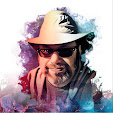
I've been going through some old animation and comics seeking inspiration for my book, and I can't find a better example of classic television animation than Jonny Quest. Jonny Quest was originally a prime time show that only lasted one season, beginning in September 1964, three months before I was even born. However, it found new life in syndication being shown on Saturday mornings in 1967, which is when I first saw it.
Jonny Quest is the 11-year old son of Dr. Benton Quest, a scientist who often works for the US government. Both Quests are accompanied by Roger T. "Race" Bannon, who serves as tutor, bodyguard, and pilot for the Jonny, as well as his Indian friend, Hadji, who joins the family in the second episode. As Dr. Quest travels the world working on various scientific projects, Jonny and Hadji learn at Race's side. He teaches them Judo, SCUBA diving, as well as academic subjects. They were often faced with international intrigue, as villains would try to steal Dr. Quest's technology or research.
From the opening electric guitar notes of the theme song, with its jazz beat and horn section, quick cuts, lasers and explosions, I was hooked. This show, obviously inspired by the James Bond movies, shows the hopeful optimism of the pre-Vietnam 1960s, when American know-how and might were thought to be unchallenged. The Quests had lasers, submersible vehicles, jet packs, hovercraft, portable telecommunication, you name it. It was like every Q gadget wrapped up in one cartoon. It's this early 1960s sensibility that you can easily see inspired Brad Bird's "The Incredibles." He even appears on the DVD set's special features, singing the show's praises.
I'm watching the first episode right now, "Mystery of the Lizard Men," and the McGuffin that the bad guys are after is a (finger quote) LASER (/finger quote). It's funny that something so futuristic in 1964 that they were afraid the technology would fall into enemy hands is sitting in my drawer upstairs where I use it as a toy for my dog to chase in the back yard.
Jonny Quest is also unique to cartoons in its violence and intensity. They shoot real guns that fire real bullets that kill real people in this show. Race throws a grenade into the lap of a thug in a Jeep and it blows up all four passengers.
An unfortunate side effect of the 1960s sensibilites are the racial stereotypes shown. Asians were very often the bad guys and they were colored a most unnatural yellow. Mexicans were shown to be swarthy and untrustworthy. Germans were more often than not former Nazis. Unless you were an American on this show, or a friend of the Americans, you were eeeevil.
Still, the show in its historical context is the best example I can think of, of an action show. It was the target of parents' groups in the late 60s and early 70s, and yet I somehow managed to grow up a non-violent person. I wish there were more shows like this now.



1 comment:
Johnny Quest is probably my all time favourite cartoon. When I was a kid, it was on at 5am or 6am, depending on the season and lovely Indiana time zones of the era. I was faithfully up every Saturday at that time, for many, many years.
It was an exciting show to watch. The art was different than the early cartoons of my generation (Lone Ranger, Tarzan), yet close enough to not look weird. It's color schemes were similar to original Scooby Doo at times, another one I liked.
You mentioned the music and the violence and I'm sure those played into my liking of the show, as well.
I also enjoyed the weird, super- and para- natural bits they did.
I watched one of the updates Cartoon Networks or some such network did in the '90s or '00s. It didn't hold a candle to the style of the original and I couldn't watch but a few moments of the new version.
I may have to pick up the dvds sometime.
Post a Comment